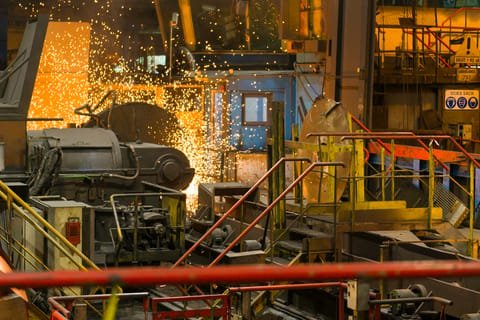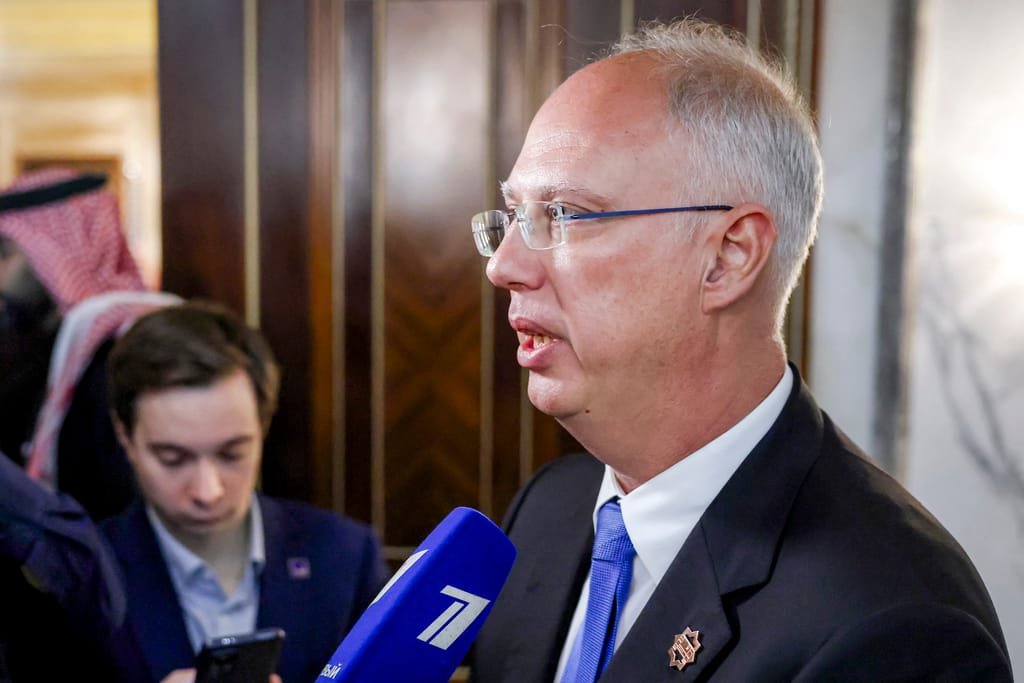A draft of the Clean Industrial Deal obtained by POLITICO reveals EU plans to drive climate-friendly manufacturing.

BRUSSELS — The European Commission is planning to introduce “Made in the EU” quotas and carbon product labels as it tries to revive ailing manufacturers while hitting climate targets.
The proposals are laid out in a draft of the Commission’s Clean Industrial Deal, obtained by POLITICO ahead of its Feb. 26 unveiling. The document offers the EU executive’s grand strategy for weaving together the bloc’s efforts to decarbonize and revitalize its heavy industry, setting out the steps it plans to take in the coming years.
The plan lands at a precarious political moment. European manufacturers in sectors such as steel and cement say excessive bureaucracy and high energy costs are leaving them unable to compete with the U.S. and China. Exacerbating the problem, both Washington and Beijing are spending lavishly on their companies, with new President Donald Trump in particular employing a “Buy American” rhetoric.
Now, the EU wants to inject a dose of “Buy European” into its own climate efforts.
Bringing it back home
The EU executive’s strategy encompasses six pillars: lowering energy prices, creating demand, spurring investment, ensuring access to key materials, working on global partnerships and reskilling workers.
The goal: “Present European industry with a stronger business case for large climate-neutral investments in energy-intensive industries and clean tech.”
The draft places demand-stimulating measures for “Made in Europe” climate-friendly goods at the heart of the Clean Industrial Deal, reaffirming an existing goal to make 40 percent of the EU’s key clean technology components within the bloc.
To that end, the Commission wants to set quotas to ensure governments and other public authorities purchase such goods.
The Clean Industrial Deal envisions both “minimum local content requirements” and “resilience and sustainability criteria,” all set by legislation to come later this year. It also says the Commission will revise the EU’s public procurement rules in 2026 to “make European preference criteria a structural feature” for “strategic sectors.”
The rules won’t just apply to public contracts.
“These criteria will also be extended to incentivise private procurement, through measures such as life cycle-based CO2 emission performance standards,” the draft adds.
Another idea in the plan is new product labels for industrial goods to show how much planet-warming carbon dioxide was emitted in the manufacturing process.
In legislation later this year, the Commission promises to develop such labels — which will remain voluntary — for specific sectors, starting with steel “in the interest of speed.” This will not entail additional bureaucratic burdens for industry, the draft stresses, with the label derived from existing carbon market data.
Energizing Europe
Another key part of the strategy is to lower energy prices and boost the rollout of cheaper green energy to replace fossil fuels.
The draft recommends the EU electrify 32 percent of its economy by 2030, up from 23 percent today, and calls for 100 gigawatts of new renewable electricity capacity each year by the same date. As part of this effort, it suggests new legislation accelerating renewable energy permits.
Many of the energy-related measures — including promises of fresh guidance on easing energy taxes and a legal package on electrical grids — are also addressed in an accompanying document, the « Action Plan for Affordable Energy, » also obtained by POLITICO.
The EU executive will ask the European Investment Bank, the EU’s lending arm, to help ease up-front investments in needed power grid components and to back long-term industrial energy contracts — though the amount of EIB backing is still undefined in the draft.
The draft also promises “short-term relief … to improve the business case for EU-made clean manufacturing.” The plan says the EU will put money behind the effort, but the amount is left unclear.
On state aid, the document promises simpler rules and separate support programs for specific technologies such as wind and solar, as well as help for clean-tech manufacturing such as batteries.
Another subject in the plan is critical raw materials — the building blocks of energy-efficient and digital technologies. The Commission plans to set up a dedicated « EU critical raw material centre » to « jointly purchase raw materials » for groups of companies.
It also wants measures to recycle more of these materials and limit exports of raw material waste.
On trade, the Commission proposes to “substantially simplify” its new carbon border tax to reduce bureaucratic burdens, and to look into expanding the measure through a revision this year, followed by a legislative proposal next year.
Plus, it vows that new “Clean Trade and Investment Partnerships” — a mix of regulatory cooperation and financial support “to develop strategic clean value chains with partners” — will “complement” the EU’s free trade agreements with other countries.
The 22-page draft dedicates less than two pages to skills and social issues, focusing mainly on ensuring that industry has access to a skilled workforce.
Victor Jack, Max Griera, Aoife White and James Fernyhough contributed reporting.





